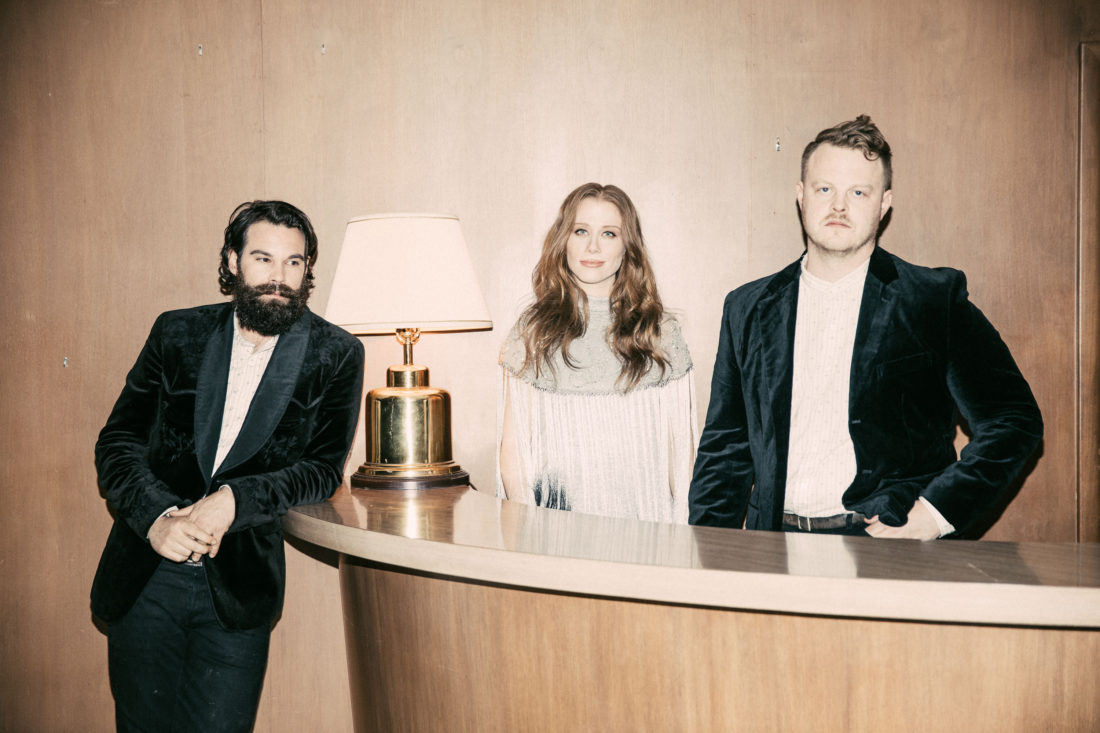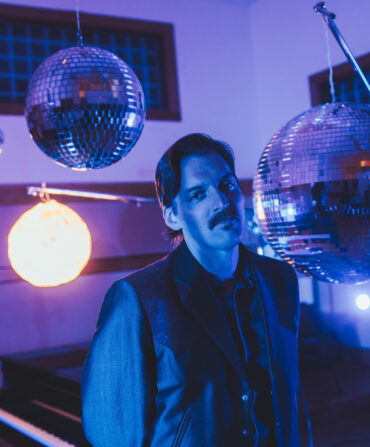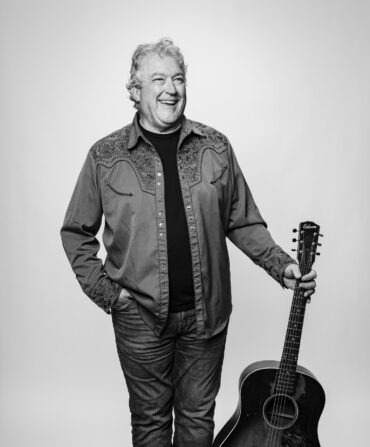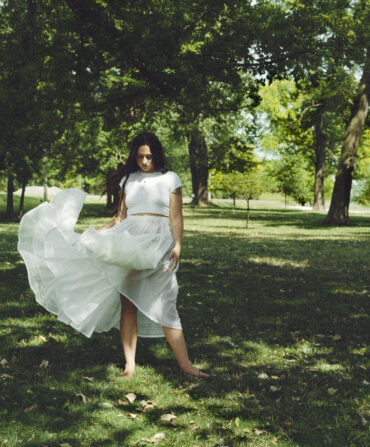“A couple of my littles are getting in the car right now, so you might hear some noises,” says Zach Williams, one-third of the lauded Americana act, the Lone Bellow. Williams is riding shotgun while his wife, Stacy, drives through a rainy Nashville to pick up their kids from school. With four children—three girls and a little boy, ranging from eighteen months to eight years old—family is paramount for Williams.
In 2004, Stacy was temporarily paralyzed in a horse-riding accident. To cope with the trauma, Williams began playing guitar and writing songs, vowing to move to New York City to pursue music if his wife was able to walk again. She did and they pulled up their stakes in Georgia and headed to Brooklyn in 2005, where he eventually formed the Lone Bellow with Kanene Donehey Pipkin and Brian Elmquist, two other members of the burgeoning Brooklyn roots music scene. But prior to the recording of their current album, Walk Into A Storm, the three bandmates and their families uprooted and moved to Nashville.
“If you have a family you can be home way more in Nashville,” Williams says. “I remember once we were gone for like five weeks, and when I got home to Brooklyn my kids were different. As much as I loved the energy and creativity of New York, they’re only gonna live in the house for eighteen years. I mean, hopefully,” he says with a laugh.
Helmed by the Nashville uber-producer, Dave Cobb, Storm crackles with a cathartic energy—the vocals and harmonies soar, and the instrumentation swells with dramatic flourishes. The trio’s sizzling live show is an exercise in roots-music grandeur, one not to be missed. They’ll begin a swing of Southern dates on Wednesday, November 1, in Knoxville. Here, Williams talks about the exodus to Music City, Grammy Awards, and Indian food.
Are you happy you made the move to Nashville?
I’m not going to lie—it was hard, really hard, especially for my wife. She had had a pretty killer routine in Brooklyn. Her and her friends took their kids to school at the same time, picked them up at the same time, then hung out at the playground together until dinner time. And when I was on tour, she had this crew. But I started making all these friends at festivals who lived in Nashville and it ended up being like summer camp, with people like Robert Ellis, Anderson East, and Margo Price. A lot of these people have families.
School pick-up must be a trip.
Oh man, I did this thing at my kids’ school where I went in and sang a couple of songs and this one kid was like, “Hey, do you have any Grammys?” I asked the class how many of their mommies and daddies had Grammys and I swear, seven of the twelve kids in the class raised their hand.
Did the move affect your songwriting?
Not really. I write all the time, I always have my tentacles out. My favorite place to write has always been in the bathroom, the acoustics are always better. But I write in hotels, or something will hit me in the gas station while buying beef jerky and I whip out the notebook. It hasn’t really changed much.
Watch: The Lone Bellow’s G&G Back Porch Session
Right as you were supposed to begin recording, Brian entered rehab to deal with a drinking problem. Did you ever think the band wouldn’t make it?
That honestly never crossed my mind mainly because me and Brian have been best buddies since we were eighteen. He’s one of those people who when he puts his mind to something, he goes full tilt all the way in. When he decided to go to rehab, we all knew his whole life was going to change. The thing that worried me is that we had RCA Studio A for thirty days and most of that time, Brian was in rehab.
Did you write any songs about that anxiety?
At the last minute, I wrote a song called “Between the Lines” and the lyrics are very much about his situation. There’s this thing with my writing in general—I have a quiet worry that anything I write that I think is good comes out of tragedy or pain. I didn’t want us to have to be a victim to that. Brian wrote “Long Way to Go” when he was in rehab, we weren’t going to record it, but Cobb was like. “We have to record that song.”
Cobb told me once that the best thing about going into the studio with bands was ordering food.
[Laughs] Absolutely! He was on a major Indian kick. But there’s no fluff with him. He was like one of my uncles: “That sucked, do it again.” I love that, I don’t like any in between stuff with people I’m working with. I wanted the record to breathe, the vocals to pop, the snare to pop. And Cobb was like, “Great, because we’re all going to sit around in a circle and record it.” He has really strong opinions and great ideas, so it forced us to fight for our own. He loves to ride on the wave of a good idea. “Change that, that, and that, then this, this, and maybe this.” Then we’d go over and record it. We made the record in seven days; it was awesome.








